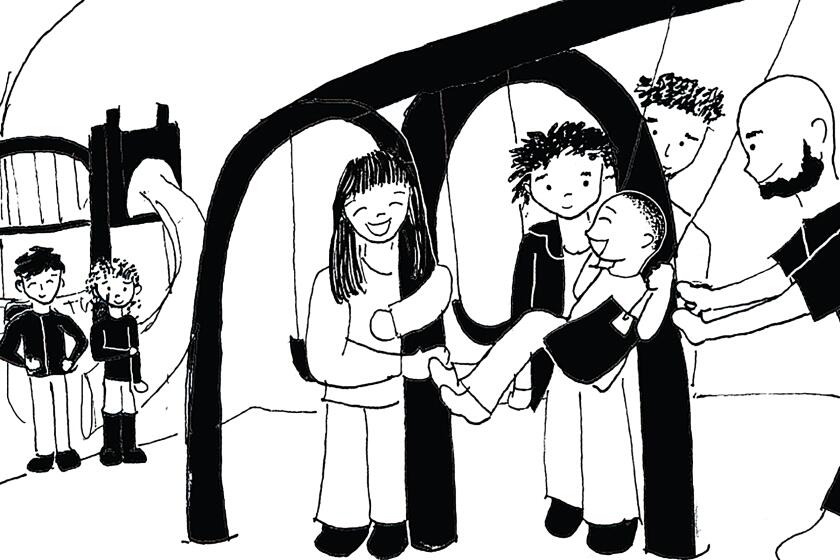Opinion: Resolutions aren’t the key to a happier new year. Here’s where to start

- Share via
We tend to look to the new year as a new beginning, as an opportunity for a fresh start. Aspiring for something different, something better, we devise resolutions in hopes of making ourselves healthier, more productive, more successful … but really, the end goal is to be happier: to feel satisfied rather than wanting at this same time next year.
We seek ingredients for this new and better life from magazine headlines and “how to” experts promising that a new year might indeed transform each of us into a “new you.” However, nobody needs outside guidance or expertise to identify their sources of satisfaction. We don’t have to search for something new and different. The best indicator of what will make us happy is what has made us happy.
Rituals remind us to savor our experiences. They’re a unique human invention to remind us to try to live fully.
I teach a course to UCLA graduate business students and executives called Applying the Science of Happiness to Life Design. The objective of the 10-week elective is straightforward: to guide students toward enjoying greater satisfaction in their days, careers and lives overall. I introduce them to a multitude of findings from academic research across the fields of psychology and behavioral decision-making, but the students’ most important lessons come from the assignments that push them to reflect on their own experiences.
One of these assignments is remarkably simple. It takes only a few minutes, and you could do it right now. Reflecting over your past year, what were the times when you felt the greatest joy? Think about it for a moment, and jot down the five activities from the past 12 months that you experienced as happiest. It is these activities that made you feel happy before that hold the greatest promise to make you feel happy in the future.
When the U.S. created a new path to legal immigration for Haitians fleeing a humanitarian crisis, I heard from an old friend.
Notice, this is different from me asking you about what activities in general make you happiest. That question is unhelpfully vague and potentially daunting. Without the defined time frame of the past 12 months, it leads to answers based on abstract beliefs, rather than your actual experiences, which can prove misleading in pursuing happiness.
If you’re nervous about the accuracy of your recall of the past dozen months or you’re someone who gains confidence from data, you could also do the time-tracking assignment. Over the course of a week, for each half-hour you’re awake, write down what activity you did and how you felt on a 10-point scale. For these ratings, reflect honestly on how satisfied and fulfilled you felt coming out of that activity. Though it may seem tedious to track your time for a whole week, looking back across your numbers to identify your emotional high points can be surprisingly illuminating.
You’re likely to notice which modes of socializing feel most meaningful for you. You’ll see which work activities or tasks are the most rewarding. Even though you might have thought of evening TV watching as a prize and you have dreaded exercise, your data could very well reveal your couch time as meh and exercise as energizing or even fun, especially when done in a particular setting or with a particular workout buddy.
These assignments are more useful than broad “top New Year’s resolution tips” drawn from the experiences of swaths of people, many of whose circumstances and preferences are quite different from yours. Your own prior experiences offer far more information and precise guidance about what will make you happy going forward.
A similar strategy can guide your approach not only to the year ahead but for many years to come. To find what is likely to produce lasting happiness in your life, you could ask someone who is closer to the end of theirs to look back. Yet another assignment I give my students is to ask an elder who has lived a good life — someone who is happy and views their past with satisfaction instead of regret — to reflect on their sources of pride. Ask an elder you admire what brought them the greatest joy over the years. Their past experiences, much like your own, can inform your future decisions.
Take a look back to identify your sources of happiness, and resolve for these next 12 months to protect time for them amid the busyness of life.
Cassie Holmes, a professor of marketing and behavioral decision-making at UCLA’s Anderson School of Management, is the author of “Happier Hour.”
More to Read
A cure for the common opinion
Get thought-provoking perspectives with our weekly newsletter.
You may occasionally receive promotional content from the Los Angeles Times.












